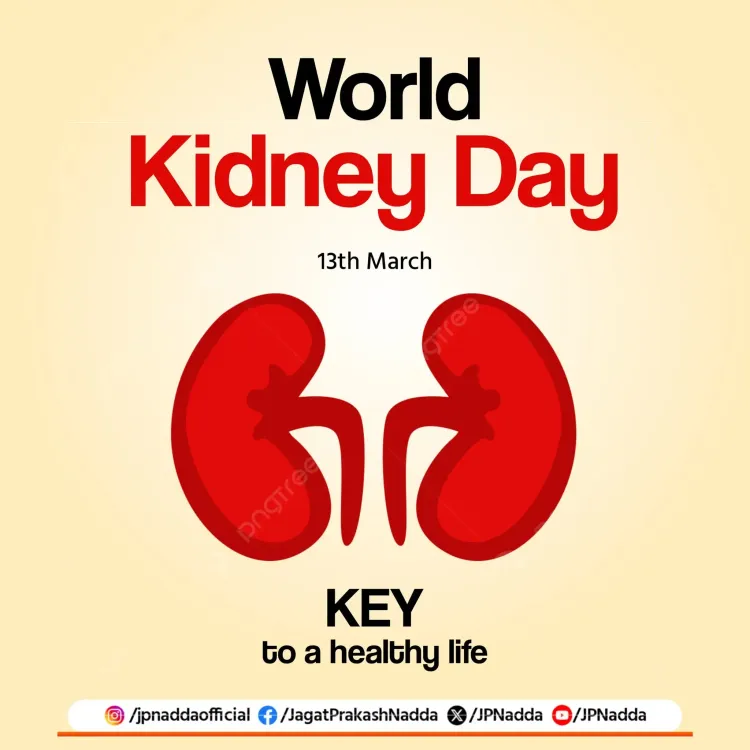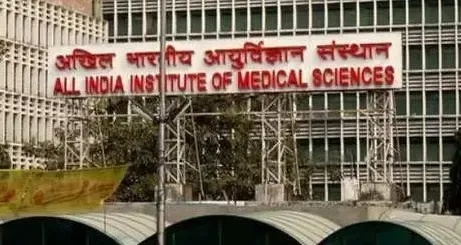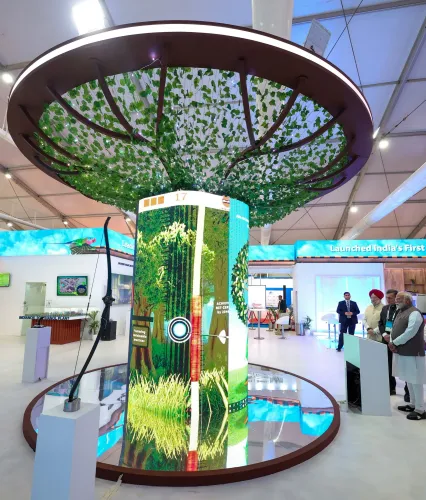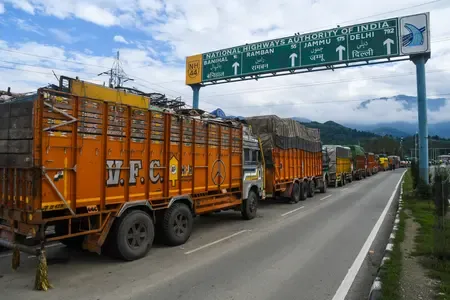World Kidney Day: Importance of Early Detection Highlighted by JP Nadda

Synopsis
Key Takeaways
- World Kidney Day is celebrated on March 13.
- Early detection of kidney diseases is critical.
- The PMNDP is transforming healthcare access.
- CKD is a significant public health issue in India.
- Simple lifestyle changes can promote kidney health.
New Delhi, March 13 (NationPress) It is essential to enhance awareness regarding kidney health and the prevention of kidney-related diseases, stated Union Health Minister JP Nadda on Thursday.
The annual observance of 'World Kidney Day' takes place on March 13 to promote understanding of kidney health, preventative strategies, and associated risk factors.
Emphasizing the significance of early detection, the minister elaborated on how the Pradhan Mantri National Dialysis Programme (PMNDP) is delivering life-saving treatments to countless individuals across the nation.
"While we commemorate #WorldKidneyDay, it is vital to highlight the significance of kidney health and the necessity for early detection and prevention of kidney-related ailments," Nadda expressed in a message on the social media platform X.
"In a pivotal move to enhance healthcare accessibility, our government, under the astute leadership of PM Narendra Modi, initiated the Pradhan Mantri National Dialysis Program (PMNDP). This transformative program has established numerous dialysis centers that are currently offering life-saving treatments to millions throughout India," he continued.
"Let us unite to disseminate information and ensure that kidney health remains a top priority for everyone," the Minister urged.
Chronic Kidney Disease (CKD) is a progressive ailment characterized by the gradual decline in the kidneys' ability to filter waste and excess fluids from the bloodstream.
This condition represents an escalating public health crisis in India, impacting a significant portion of the population and resulting in over 100,000 new cases of kidney failure each year.
While it afflicts one in ten adults, the rate of early detection remains alarmingly low, frequently leading to severe complications like hyperkalemia (high potassium levels), which heightens the risk of heart failure.
This is primarily due to the minimal symptoms present in the initial stages, which often go unnoticed.
Recent research published in the Nephrology journal indicates a troubling increase in CKD cases across India.
Examining data from 2011 to 2023, the study revealed that CKD prevalence among individuals aged 15 and older surged from 11.2 percent (2011-2017) to 16.38 percent (2018-2023).
The findings also underscored a notable rural-urban divide, with CKD impacting 15.34 percent of the rural populace compared to 10.65 percent in urban settings.
Importantly, kidney health is intricately linked to conditions such as diabetes and obesity, which are among the primary causes of CKD.
As CKD often advances without noticeable symptoms, millions are at risk of serious complications, diminished quality of life, and increased healthcare costs.
Meanwhile, the Ministry of Health emphasized the necessity to "prioritize kidney health."
In an infographic shared on X, the ministry recommended five straightforward steps to maintain robust and healthy kidneys.
These include regular exercise, adequate fluid intake, blood sugar management, reduced salt consumption, and avoidance of tobacco and alcohol.
Early detection, proactive management, and access to efficient treatments are vital in addressing this escalating public health issue.










